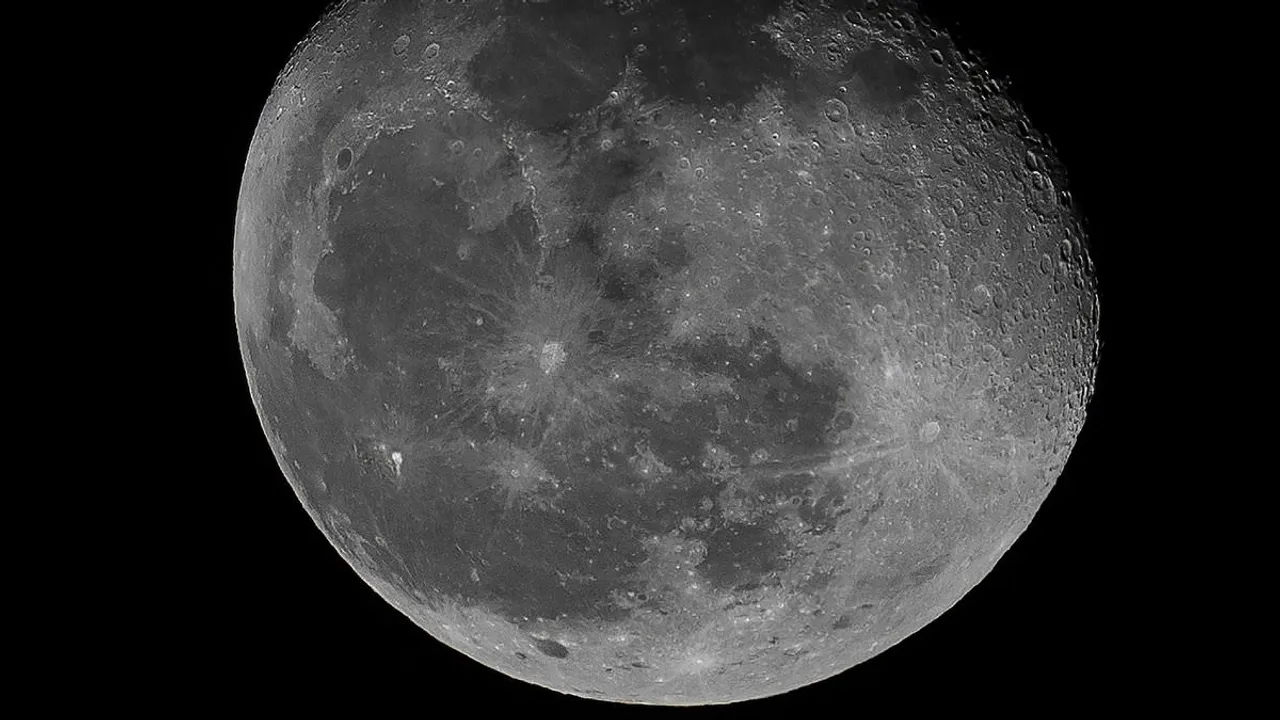Speculations regarding potential "space wars" between global superpowers have escalated following Russia's announcement of plans to establish a nuclear power plant on the Moon.
The announcement, made by Yuri Borisov, Head of Russia's space agency Roscosmos, has sparked both intrigue and concerns within the international community.
Addressing the World Youth Festival in Sirius, Russia, Borisov disclosed Russia's collaborative intentions with China to construct a nuclear power facility on the lunar surface by 2035.
"Today we are seriously considering a project – somewhere at the turn of 2033-2035 – to deliver and install a power unit on the lunar surface together with our Chinese colleagues," RBC quoted Borisov as saying on Tuesday.
He further explained the necessity of such a project, citing the inadequacy of solar panels to ensure a consistent electricity supply for potential lunar settlements.
"This is a very serious challenge...it should be done in automatic mode, without the presence of humans," he said of the possible plan.
In addition, Borisov outlined Russia's ambitions to develop a nuclear-powered cargo spaceship, aimed at facilitating large-scale transport operations within space.
"We are indeed working on a space tugboat,” he said. “This huge, cyclopean structure that would be able, thanks to a nuclear reactor and a high-power turbines...to transport large cargoes from one orbit to another, collect space debris and engage in many other applications.”
Russia's announcement comes amid a series of setbacks in its space program, including the failed Luna-25 lunar mission in the previous year. However, President Vladimir Putin has reaffirmed Russia's determination to overcome these challenges and pursue advancements in space exploration.
In March 2021, Moscow and Beijing signed an agreement on building an international lunar research station, and presented a roadmap for the construction in June 2021.
China has its own lunar exploration program, with an unmanned "Chang'e-6" probe due to launch in May to collect rock samples.
Some in the US have speculated that Russia is planning to use a new type of nuclear weapon against satellites. But the Roskosmos chief, who took over Roskosmos in 2022, insisted that Russia had no plans of stationing nuclear weapons in space.
Meanwhile, the concept of utilizing nuclear reactors for lunar energy requirements is nothing new. With lunar nights lasting for 14 Earth days, relying solely on solar power carries risks for both manned and unmanned moon missions.
The necessity for reliable energy sources in space has become increasingly apparent, especially with NASA's forthcoming Artemis mission aiming to return humans to the Moon by 2026.







 Azerbaijan and Armenia started the process of demarcation of their border on Tuesday, with the installation of the first border markers based on ge...
Azerbaijan and Armenia started the process of demarcation of their border on Tuesday, with the installation of the first border markers based on ge...
 President Aliyev emphasized the critical role of the North-South Transport Corridor in fostering transport cooperation between Azerbaijan and Russi...
President Aliyev emphasized the critical role of the North-South Transport Corridor in fostering transport cooperation between Azerbaijan and Russi...
 Iran and Pakistan have signed eight cooperation documents in various fields, and agreed to strengthen ties to fight terrorism in the region.
Iran and Pakistan have signed eight cooperation documents in various fields, and agreed to strengthen ties to fight terrorism in the region.
 As the conflict between Ukraine and Russia escalates, the strategic importance of Kharkiv, Ukraine's second-largest city, has come sharply into focus.
As the conflict between Ukraine and Russia escalates, the strategic importance of Kharkiv, Ukraine's second-largest city, has come sharply into focus.
 Iranian President Ebrahim Raisi expressed Tehran’s readiness to participate in significant development projects in Sri Lanka during the inauguratio...
Iranian President Ebrahim Raisi expressed Tehran’s readiness to participate in significant development projects in Sri Lanka during the inauguratio...



